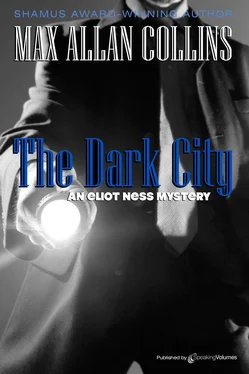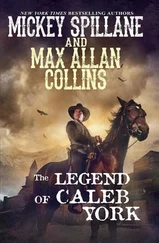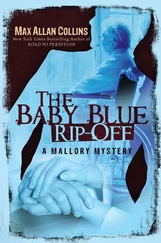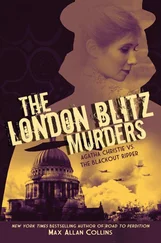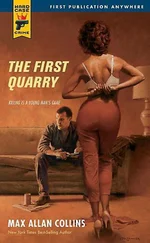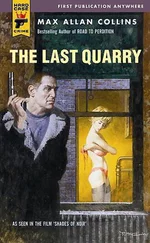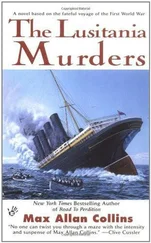Max Collins - The dark city
Здесь есть возможность читать онлайн «Max Collins - The dark city» весь текст электронной книги совершенно бесплатно (целиком полную версию без сокращений). В некоторых случаях можно слушать аудио, скачать через торрент в формате fb2 и присутствует краткое содержание. Жанр: Криминальный детектив, на английском языке. Описание произведения, (предисловие) а так же отзывы посетителей доступны на портале библиотеки ЛибКат.
- Название:The dark city
- Автор:
- Жанр:
- Год:неизвестен
- ISBN:нет данных
- Рейтинг книги:5 / 5. Голосов: 1
-
Избранное:Добавить в избранное
- Отзывы:
-
Ваша оценка:
- 100
- 1
- 2
- 3
- 4
- 5
The dark city: краткое содержание, описание и аннотация
Предлагаем к чтению аннотацию, описание, краткое содержание или предисловие (зависит от того, что написал сам автор книги «The dark city»). Если вы не нашли необходимую информацию о книге — напишите в комментариях, мы постараемся отыскать её.
The dark city — читать онлайн бесплатно полную книгу (весь текст) целиком
Ниже представлен текст книги, разбитый по страницам. Система сохранения места последней прочитанной страницы, позволяет с удобством читать онлайн бесплатно книгу «The dark city», без необходимости каждый раз заново искать на чём Вы остановились. Поставьте закладку, и сможете в любой момент перейти на страницу, на которой закончили чтение.
Интервал:
Закладка:
Max Allan Collins
The dark city
ONE
CHAPTER 1
A smoky, cloudy haze hung over the city, turning the afternoon into night. Crane your neck back as far as you liked, you still couldn't make out the top of Terminal Tower, the Van Sweringen brothers' fifty-two-story tribute to the city and them-selves. The Vans were broke now, or claimed to be, and their tower complex-with its department store, office building, bank, hotel, and restaurants-loomed over the city like a joke, an ironic middle-finger reminder of more prosperous times, when the Depression wasn't hanging over the city like the smoke and clouds that for almost a month now had made every day a night.
Traditionalists continued to call it "the Forest City," and the Chamber of Commerce flacks were insisting it was "the Vacation City"; but the papers were calling Cleveland "the Dark City," and not only because of these sunless days. Times were hard. On Public Square, amid statues of the city's founder Moses Cleaveland and legendary mayor Tom L. Johnson and various Civil War heroes, near the foot of a lavishly decorated, gaily lit giant Christmas tree, panhandlers and prostitutes prowled, often seeming to outnumber pedestrians. Those pedestrians seemed weary, cloaked in cynicism, as gray as the afternoon night around them, seldom speaking to one another, the cold wind from Lake Erie chilling their bones.
Not that everyone in Cleveland, on the afternoon of Wednesday, December 11, 1935, had given in to depression, either emotional or financial. At least one man was feeling good. He was one of the lucky ones: he was employed. More than that, he liked the line of work he was in, even if in recent months his job had begun-he would have to admit, if pressed-to bore him.
But not this afternoon. This afternoon, this bleak gray afternoon, he was smiling with anticipation. It was a tight smile, a poker player's barely-there smile, though the laugh lines around his gray-blue eyes gave him away. He was eager. He could smell the kill. He was handsome, in a boyish, almost baby-face manner, with a trail of freckles across his nose, and his Norwegian stock was apparent, despite the dark brown hair. He was a young man of thirty-two who stood six feet but seemed taller, possibly because he was so slim. This slimness belied his powerful arms and shoulders, the legacy of a, stint in one of Chicago's South Side auto plants dipping radiators in his youth. His tan camel-hair topcoat seemed a bit big for him, but the snap-brim fedora gave him the proper air of authority for the Chief Agent of the U.S. Treasury Department's Alcohol Tax Unit.
He was sitting on the rider's side of a ten-ton flatbed truck, the back of which was loaded with scaling ladders, the front of which was a specially constructed metal prow, an ugly sideways v whose point was aimed for-ward. The truck was moving in low gear down Sweeney Avenue, just outside Cleveland's industrial flats along the winding Cuyahoga River, through an area of ware-houses and working class housing, rumbling over miles of railroad tracks. Two carloads of agents were already at the large red brick building on Sweeney Avenue, having preceded the truck by a minute or so. Agents from these cars would unload the ladders, once the steel bumper had burst open the door of the suspected distillery.
Eliot Ness had done his homework on this one. But the agent behind the wheel of the truck-a heavyset, grizzled veteran named Bob Hedges, who didn't much like his college-boy boss-had done most of the legwork. A week ago Hedges had walked Ness around the building at Sweeney and Fifty-third, on an afternoon as gray as this one.
"Take a look," Hedges had said, pointing to the back of the brick building where yellow-stained icicles hung like frozen urine.
Ness had nodded. The staining was characteristic of an illicit distillery. Steam and fumes seeped through the walls and discolored the ice.
"Bob, we've had this place under surveillance for months," Ness said, shaking his head, digging his hands in his topcoat pockets. "We've never seen any molasses or sugar go in, and nothing ever seems to come out."
Hedges lifted a thick finger and lectured his chief. "But they got a guard on the front door. A regular gorilla. Something's the fuck up."
Ness sighed. He didn't much like Hedges and his rough manner, but he did respect the hard little man's instincts. Hedges was a good, honest cop. Ness didn't ask for anything else from his men.
And there indeed was a guard posted at the big brick building, except for occasional lunch and supper breaks like the one the guard was on now, giving Ness and Hedges the opportunity to case the joint.
Also, the location was perfect for a mob distillery. It was roughly halfway between the Woodland Avenue neighborhood, home of many Italian-Americans, some honest and some not so, and Newburgh Heights, where just beyond the city limits wide-open gambling joints like "Shimmy" Patton's Harvard Club and "Gameboy" Miller's Thomas Club flourished. As a cost-cutting measure, the Mayfield Road mob had been supplying their clubs with tax-free bootleg hooch, often filling and refilling bottles that had once contained legal liquor and retained the proper labels.
Ness found a broken window to peer in. He could see nothing, except what appeared to be a cinder floor.
"Looks empty in there," Ness said.
"It's a still, I tell you," Hedges said. "The mother of all stills."
Ness nodded noncommittally. "Let's get out of here before the gorilla gets back."
Hedges shook his head in frustration, but he brightened in the car, when Ness told him, "I think you're right about that place. And I think I know what's going on back there…"
He had directed Hedges to check the records in the city engineer's office at City Hall. "Look for any abandoned sewer line that might be near the Sweeney Avenue building."
"Bingo," Hedges had said, entering Ness' small office in the Standard Building without knocking. He had blue-prints in his arms; he spread them out on Ness' battered rolltop desk, on top of the other papers there. "Aban-doned sewer-brick construction, with an interior diameter of five feet. Runs right by the place."
Ness looked over the blueprints. "The same sewer runs past Molaska Products, I see."
"I noticed that too," Hedges said and grinned. "That's Mo Horvitz's molasses company."
"It sure as hell is," Ness said, sitting up. "And we know what they're up to, don't we. They're pumping molasses through the old sewer line from their storage tanks to the basement of the Sweeney Avenue building."
"Agreed. But how the hell are they getting the alcohol out?"
Ness reexamined the blueprints. "I don't know. Is there a gas station in the area?"
"It don't show on there," Hedges said, waving at the blueprints, "but yeah, there's a couple. You think they're pumping the booze out of the basement through these old sewer pipes, to a gas station?"
Ness nodded. "Old Chicago trick. Big tank truck comes into the station, supposedly to fill the station's storage tanks. Only the tank trucks come in empty… and go out full."
"But not of gasoline."
"Not hardly," Ness said.
Now they were nearing the padlocked double front doors of the brick warehouse, the truck in second gear. The burly but sleepy guard bundled in an overcoat and sitting on a barrel reading the Police Gazette, suddenly sprang to, his eyes round as poker chips, and yelled, "Hey!", and headed for the hills.
Ness braced himself on the dashboard as the wooden doors grew larger before him, and then with a splintering crunch the steel prow and the truck behind it flattened the doors and rolled right over them, into the big, open-and very empty-warehouse.
Читать дальшеИнтервал:
Закладка:
Похожие книги на «The dark city»
Представляем Вашему вниманию похожие книги на «The dark city» списком для выбора. Мы отобрали схожую по названию и смыслу литературу в надежде предоставить читателям больше вариантов отыскать новые, интересные, ещё непрочитанные произведения.
Обсуждение, отзывы о книге «The dark city» и просто собственные мнения читателей. Оставьте ваши комментарии, напишите, что Вы думаете о произведении, его смысле или главных героях. Укажите что конкретно понравилось, а что нет, и почему Вы так считаете.
